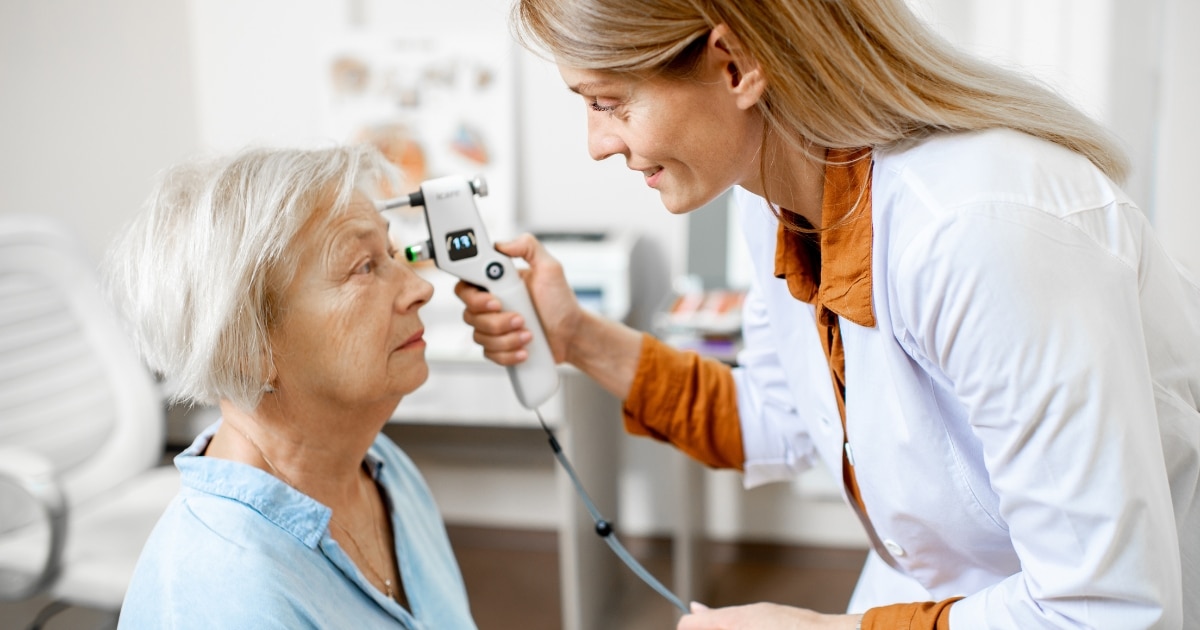Every day, millions of people navigate the challenges of diabetes, often without fully realizing the potential impact on their eyes. If you’re living with diabetes, keeping a watchful eye on your vision is crucial. Your eyes can tell you a lot about your overall health, and understanding the signs of trouble can make a significant difference. Let’s delve into the connection between diabetes and eye health, uncovering the warning signs you should monitor during your regular eye exams.
The Diabetes-Eye Connection
Diabetes can lead to various eye conditions, collectively known as diabetic eye disease. This group includes diabetic retinopathy, cataracts, and glaucoma. High blood sugar levels can damage the blood vessels in your retina, leading to vision problems. With early detection and treatment, you can protect your vision. Here are the key conditions linked to diabetes:
- Diabetic Retinopathy: Damage to the blood vessels in the retina, potentially leading to vision loss.
- Cataracts: Clouding of the lens in the eyes can occur earlier in people with diabetes.
- Glaucoma: Increased pressure in the eye that can damage the optic nerve, leading to vision impairment.
Key Warning Signs of Eye Issues
Even if you feel fine, some warning signs can signal trouble. Being aware of these can help you act quickly and protect your vision:
- Blurred or Distorted Vision: If you notice changes in your clarity of vision, it could indicate fluid changes in the retina.
- Floating Spots or Flashes of Light: These might seem harmless but can signal retinal detachment or other serious issues.
- Difficulty Seeing at Night: Struggling to see in low light conditions may indicate cataract development.
- Redness or Swelling: Persistent redness or swelling in or around your eyes might indicate inflammation or infection.
- Double Vision: Experiencing double vision could signal problems with your eye muscles or other underlying conditions.
- Dark or Empty Areas in Your Vision: This could signify advanced diabetic retinopathy, requiring immediate attention.
Taking Control of Your Eye Health
Managing diabetes effectively is your first line of defense against eye problems. Here are some proactive steps you can take:
- Monitor Blood Sugar Levels: Regularly check your blood sugar and keep it within your target range to reduce the risk of complications.
- Maintain a Healthy Diet: Incorporate plenty of fruits, vegetables, whole grains, and lean proteins into your meals. Foods rich in vitamins C and E, omega-3 fatty acids, and zinc are particularly beneficial for eye health.
- Stay Active: Regular physical activity helps regulate blood sugar levels and can improve circulation, benefiting your eyes.
- Schedule Regular Eye Exams: Don’t wait for symptoms to appear. Have a diabetic eye exam at least once a year or as your healthcare provider recommends.
Lifestyle Changes That Make a Difference
In addition to regular check-ups, certain lifestyle changes can significantly enhance your eye health:
- Quit Smoking: If you smoke, seek help to quit. Smoking increases your risk of diabetic eye disease.
- Control Blood Pressure and Cholesterol: High blood pressure and cholesterol levels can exacerbate eye problems. Keep them in check through diet, exercise, and medication if needed.
- Stay Hydrated: Drink plenty of water to maintain overall health, including eye moisture.
- Protect Your Eyes from UV Rays: Wear sunglasses with UV protection to shield your eyes from harmful rays, especially during sunny days.
Communicating with Your Healthcare Team
Don’t hesitate to discuss your concerns with your healthcare provider. They can guide you on managing your diabetes effectively and help monitor your eye health. Be open about any changes in your vision, as early intervention is critical. Additionally, consider these tips:
- Keep a Journal: Track any changes in your vision, blood sugar levels, and lifestyle habits to share during your appointments.
- Ask Questions: No question is too small. Understanding your condition better can empower you to take charge of your health.
- Consider a Diabetes Education Program: These programs can provide valuable information about managing diabetes and its effects on the body, including the eyes.
Keeping an eye on your eye health is essential if you have diabetes. Be proactive, and pay attention to any warning signs that may arise. You can take charge of your vision and overall health by maintaining a healthy lifestyle, monitoring your blood sugar, and scheduling regular eye specialist visits. Remember, your eyes reflect your well-being—don’t ignore the signs.
Implement these strategies today to ensure a bright and healthy tomorrow. Your vision deserves the best care possible!


